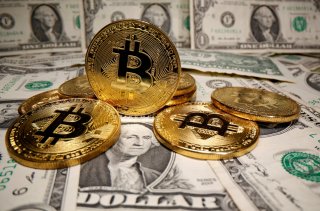Some Call It Fraud: More People Than Ever Hate Cryptocurrency
A number of countries – China, Iran, and Turkey so far – have banned the tokens from use for various reasons. American environmentalists have decried it, and Tesla CEO and noted crypto aficionado Elon Musk has declared that his company will no longer accept Bitcoin purchases of vehicles.
Cryptocurrency trading has spiked in 2021. With millions of Americans stuck at home and exploring the Internet, and money a constant topic of discussion, it should come as no surprise that Google searches for Bitcoin and Ethereum have respectively increased sevenfold and thirtyfold since the onset of the pandemic. The increased interest in the currency has driven the price up since the beginning of the year. However, it has also drawn attention to some of its unfortunate aspects, such as its mammoth consumption of electricity and contribution to climate change.
Critics of Bitcoin are not solely focused on the environmental concerns surrounding the blockchain token. More significantly, many are worried that it is a bad investment. While cryptocurrencies fulfill many of the basic needs of currencies – they are easily transferrable, easily divisible, and recognized widely – they have no physical basis, no intrinsic value, and (crucially) no government backing them up in the event of a collapse. As Bitcoin has no real-world applications, to the extent that it has any real value, this value is solely what people believe it to be. As recent weeks have shown, people’s beliefs can change quickly; the currency collapsed from a high of $64,000 to under $40,000 practically overnight.
A number of countries – China, Iran, and Turkey so far – have banned the tokens from use for various reasons. American environmentalists have decried it, and Tesla CEO and noted crypto aficionado Elon Musk has declared that his company will no longer accept Bitcoin purchases of vehicles.
And this week, Bitcoin skeptics can count among their ranks Jamie Dimon, CEO of JPMorgan Chase, the largest bank in the United States. While testifying before the House Financial Services Committee, Dimon was asked to comment on Bitcoin. His advice was unequivocal: “Stay away from it.”
Dimon offered the qualification that he did not believe cryptocurrency trading should be illegal. He noted that some of JPMorgan’s clients had expressed interest in it, but, comparing it to marijuana use, underlined that he would not engage in it and did not recommend it to others.
While Dimon’s advice will be taken by some and rejected by others, it is clear that his personal beliefs have not affected his bank’s actions. Caving to market demand, JPMorgan has slowly begun to offer crypto-related services to its clients, now offering a bitcoin fund – actively managed by traders to (hopefully) increase profits.
And, unlike Musk and other recent skeptics, Dimon’s position on Bitcoin has remained constant. In 2017, long before most Americans had heard of the token, he described it as a “fraud.”
Trevor Filseth is a news reporter and writer for the National Interest.

